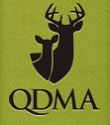 You fall into one of these categories: You’ve heard of them, you’re interested in owning one, or you already have one. What am I talking about? Is it a new rifle or bow for deer hunting? Or maybe a chainsaw or drip torch for improving deer habitat? All of these are definitely important management tools, but I am talking about one of the most enjoyable and entertaining ones out there – shed antler dogs.
You fall into one of these categories: You’ve heard of them, you’re interested in owning one, or you already have one. What am I talking about? Is it a new rifle or bow for deer hunting? Or maybe a chainsaw or drip torch for improving deer habitat? All of these are definitely important management tools, but I am talking about one of the most enjoyable and entertaining ones out there – shed antler dogs.
Shed hunting is great for several reasons, including finding specific antlers from individual bucks you may have a history with, or finding a new deer that gets you excited for next season. Ultimately though, shed hunting is fun! Throw an energetic dog in the mix, and you have a recipe for some great memories to be made. Find 6 great shed-hunting tips here.
Shed antler dogs have been around for some time but have really received a lot of attention in the last few years, and for a good reason! People are having great success with shed antler dogs and sharing their memories almost instantly through social media. I fell victim to this hype a little over two years ago when my fiancé, Sarah, surprised me with a female chocolate lab puppy named Lady Sage Foster.
After bringing Sage home and seeing her immediate infatuation with antlers, I began my training research, specifically for finding shed antlers. Going in, I had fairly realistic expectations for Sage. I had a vision that if she were to see or smell a shed antler, she would pick it up and bring it to me. There are lots of resources out there for training shed dogs. I encourage you to research several of the different training techniques and pick the one that works best for you and your dog.
I recently had the pleasure of talking with Tom Dokken, a professional dog trainer with over 30 years of training experience, who is also the North American Shed Hunting Dog Association president. I attended one of his shed dog training seminars where he demonstrated training techniques for successful shed dogs.
“Shed dog training itself is relatively easy,” Tom told me, “but the base ingredient for a successful shed dog is a high retrieval desire, no matter which breed, so they know to bring back a shed when they come across one.”
Tom gave me some great advice, along with several training trips. I have already implemented some with Sage, and some I intend to use in the future.
We started out with simple retrieves in the yard with both training dummies and small antlers.
“Treat the antler as a tennis ball, and keep it fun,” said Tom.
As the weeks went on, we moved up to multiple antlers. Sage’s natural instinct to retrieve was expressed, and her desire for antlers was ingrained.
After working on retrieving, we moved to the hunting phase by planting antlers to work on her visualization and scent skills. We started in the yard initially, and then worked into more realistic environments where one might actually find a shed. Initially I used a liberal amount artificial antler scent and worked her downwind of the planted antlers. As she progressed I reduced the amount of antler scent, as well as my own scent, by handling antlers with rubber gloves and wearing rubber boots. Her training was going extremely well and I was confident she was ready for the real deal.
I wanted to ensure she had some success so I took her to several locations with a high probability of coming across sheds. To say we had success our first time out would be an understatement. Once she spotted the heavy four-point antler, she couldn’t get to it quick enough and was so proud to bring it back to me. Since then, she has exceeded my expectations and has retrieved several antlers that would still be left on the landscape if it wasn’t for her.
Not only are shed dogs a useful tool for increasing the success of finding more shed antlers, they are an absolute blast to have along. There is no greater reward than your seeing your training efforts pay off when your four-legged friend comes back tail-wagging and packing an antler. If you are currently a dog owner, it’s not too late to train your dog to find antlers. If you are not, maybe a new puppy is in your future.
About the Author: Alex Foster is a QDMA Wildlife Cooperative Specialist in Missouri.
